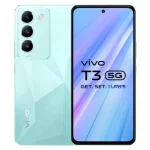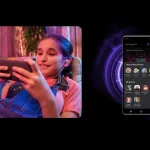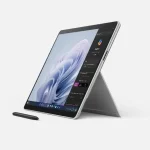With regards to PCs, input gadgets are fundamental as they permit people to interface with PCs. It is difficult to utilize a PC without a console, mouse, and other such information gadgets. This article will investigate utilizing an information gadget, the few shapes they might take, and a few models that hotshot its various applications. Let’s read below “Definition for Input Devices With Examples”:-
Overview of Definition for Input Devices:
Information and orders are placed into a PC utilizing input gadgets. These gadgets go about as interpreters among people and PCs, learning from people and changing it into a structure that PCs can comprehend. Input gadgets’ chief intention is to give regular client PC collaboration, which is urgent to the registering system.
Types of Input Devices:
Keyboard:
- An essential input device, a keyboard consists of keys that stand for individual characters, symbols, or operations.
- The QWERTY keyboard layout is the most prevalent type of computer keyboard. Other examples are ergonomic keyboards with certain layouts and touchscreens that function as virtual keyboards.
Mouse:
- Moving cursor on a GUI is effortless, akin to sliding a mouse across a surface.
- Mouse typically includes push buttons for launching predefined actions.
- Advanced mice, with extra buttons or trackballs, excel in precision-demanding tasks.
- Essential for areas like gaming and graphic creation.
Touchpad:
- A laptop’s or other electronic device’s touchpad is a flat region that detects when a user’s finger is hovering over it. You may use it in place of a mouse for more streamlined computer operations.
- Touchpads on laptop computers allow users to interact with the screen by tapping, scrolling, and pinching.
Trackball:
- Any input device with a ball and socket design might be considered a trackball. Users may move the on-screen cursor by turning the ball with their palm or fingers.
- The Trackman Marble by Logitech and the Expert Mouse by Kensington are two popular examples of trackballs utilized for precise cursor control.
Joystick:
- In the context of simulation and gaming, an input device known as a joystick fits the bill nicely. A versatile tool for manipulating the on-screen action.
Scanner:
- A scanner is an input device that can convert paper documents and photographs into digital format.
- Some examples of machines used to scan paper documents and images into digital form include flatbed scanners, document scanners, and portable scanners.
Graphics Tablet:
- Used with a stylus, it allows drawing or writing digitally.
- Transmits drawn or written data to the computer for various applications.
- Wacom Intuos and Huion Inspiroy tablets are notable examples.
- Highly praised by graphic designers and digital artists for sensitivity and precision.
Microphone:
- The Meaning of a Microphone An audio input device, a microphone converts audible sound into electronic data. It’s an easy way for individuals to feed audio into a computer for tasks like speech recognition and video conferencing.
Webcam:
- Definition: A webcam is a camera that records video and broadcasts it in real-time. Most people use it for video conferencing, internet video streaming, and video recording.
- Some of the most well-known webcams, such the Logitech C920 and the Microsoft LifeCam, include embedded microphones and are lauded for their high-quality video and audio recording capabilities.
Biometric Input Devices:
- Input devices that use a person’s unique physiological or behavioral characteristics for authentication and identification are called biometric input devices.
- Fingerprint scanners, iris scanners, and face recognition systems are just a few examples of the biometric input devices frequently utilized for these purposes.
Game Controllers:
- Computer game control center and individual laptops both utilize input gadgets called game regulators. They give a material connection point to clients to control in-game characters and activities.
Conclusion:
The large number of info gadgets, from the most key consoles and mice to state-of-the-art devices like graphical tablets and biometric scanners, mirrors the rising assumptions for clients in a wide assortment of fields.
I hope you like reading Definition for Input Devices With Examples”.








